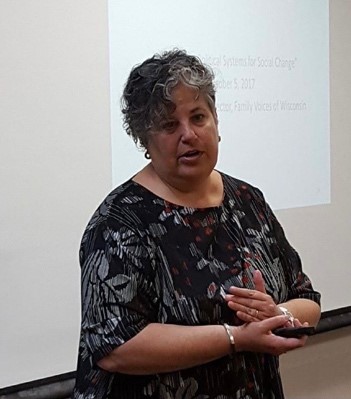Congress and the president have not yet reached an agreement on funding for construction of a wall between the U.S. and Mexico, which the president is seeking. If they do not come to an agreement by December 21, there will be a partial government “shut-down” affecting seven departments and related agencies. (In an unusual turn of events, the appropriations bill for the Departments of Labor, Health and Human Services, and Education has already been enacted.)
Meanwhile, lawmakers have been busy. In recent weeks one or both chambers have passed several bills related to maternal and child health care:
Now before the Senate:
The Improving Medicaid Programs and Opportunities for Eligible Beneficiaries Act (H.R. 7217; text), also known as the IMPROVE Act, which incorporates several Medicaid bills that had been introduced earlier, most notably scaled-back versions of the ACE Kids Act, which would allow states to receive Medicaid reimbursement for “health homes” to better coordinate care for children with medically complex conditions, and the EMPOWER Care Act, which would extend for three months the Medicaid “Money Follows the Person” program to help people transition from institutional to community-based care. Proponents of this bill are hoping that the Senate will pass it before the 115th Congress adjourns this month.
Now before the House:
The Emergency Medical Services for Children (EMSC) Program Reauthorization Act (S. 3482), introduced by Senators Robert Casey (D-PA), Brian Schatz (D-HI), and Orrin Hatch (R-UT), was passed by “unanimous consent” in the Senate on December 11, and now will move to the House. A companion bill was introduced in the House but has not been taken up in committee. Although there is not enough time for the bill to be taken up in committee before the end of the congressional session, it is possible that it could still be passed by the House. The EMSC program, administered by the Maternal and Child Health Bureau, provides grants to states and territories to improve their response to pediatric emergencies.
Ready for the President’s Signature:
Update: The Preventing Maternal Deaths Act of 2017 (H.R. 1318). Since the last Update, this bill was passed by the Senate, so is now ready for the president’s signature. The legislation would provide funding to states and tribes to establish and improve maternal mortality review committees to investigate cases of maternal death and develop recommendations to prevent them.
The Prematurity Research Expansion and Education for Mothers who deliver Infants Early (“PREEMIE”) Reauthorization Act of 2018 (S. 3029). This bill was sent to the White House on December 13. It will reauthorize for five years programs at the Centers for Disease Control and Prevention (CDC) and the Health Resources and Services Administration (HRSA) to collect data about and improve the treatment and outcomes of premature infants, to educate providers and the public about the risk factors for having a preterm baby, and to improve maternal health.
Signed by the President:
Updated: The Improving Access to Maternity Care Act (H.R. 315). On December 17, the president signed this bill, which was passed by the Senate on December 6, 2018, and the House January of 2017. The bill requires the Health Resources and Services Administration (HRSA) to identify and assign providers to areas that have a shortage of maternity care health professionals.
Farm Bill
Last week, both houses of Congress approved, by large margins, the “conference report” (House-Senate compromise legislation) on the “farm bill,” the Agriculture Improvement Act of 2018 (H.R. 2). The bill reauthorizes a number of agriculture programs and the Supplemental Nutrition Assistance Program (SNAP), commonly known as the food-stamp program. The conferees rejected significant cuts to SNAP that had been included in the House version of the bill. The bill now goes to the White House for the president’s signature. For more information, see the website of the Food Research and Action Center.
Senator Alexander will not run for re-election in 2020
As reported in STAT, Senator Lamar Alexander (R-TN) has announced that he will not seek re-election when his term expires in 2020. Senator Alexander chairs the Senate Health, Education, Labor, and Pensions (HELP) Committee, which has jurisdiction over many provisions in the Affordable Care Act, and numerous other public health and medical research (including NIH) programs (but not including Medicare, Medicaid, or Family-to-Family Health Information Centers).


















